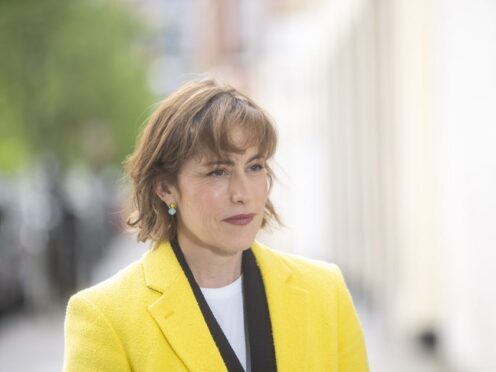The Health Secretary has pledged to work to close any loopholes which could see online providers prescribe hormones to gender-questioning children as she hit out at the “morally and medically reprehensible” practice.
Victoria Atkins indicated the Government could legislate to ban young people accessing prescriptions to gender-blocking drugs from private clinics and online.
The MP insisted “nothing is off the table” when it comes to ensuring private and online providers cannot “get around the rules” following publication of the long-awaited Cass Review into children’s gender services in the NHS.
The report concluded that children had been let down by a lack of research and evidence on the use of puberty blockers and hormones, in a debate that it described as having become exceptionally toxic.
In her review, published last week, Dr Hilary Cass said she “understands and shares the concerns about the use of unregulated medications and of providers that are not regulated within the UK”.
Her report stated that “no clinician should prescribe outside their competence, nor should GPs be expected to enter into a shared care arrangement with a private provider, particularly if that private provider is acting outside NHS guidance”, and warned that pharmacists “are responsible for ensuring medications prescribed to patients are suitable”.
The review also stated that GPs had expressed concern about being pressurised to prescribe hormones after they have been first handed out to a patient by a private provider.
In March, NHS England confirmed children will no longer be prescribed puberty blockers at gender identity clinics outside clinical research trials, and following the Cass Review the health service said it had agreed to review the use of masculinising or feminising hormones in the form of testosterone or oestrogen for children from the age of 16.
Speaking in Parliament on Monday, Ms Atkins said she shared a concern “that clinicians who subscribe to gender ideology will try to use private providers to get around the rules”.
🗣️ We welcome publication of the final Cass Review report.
Those involved in the care and support of gender questioning children and young people must comply with principles of good professional practice and their legal obligations.
Full statement: https://t.co/MhnvDciPiV pic.twitter.com/e6HaLZuNH2
— EHRC (@EHRC) April 15, 2024
She warned that any gender clinic prescribing hormone blockers or cross sex hormones to people under 16 “may be committing extremely serious regulatory offences for which they can have their licence revoked and their clinicians can be struck off”.
Officials at the Department of Health and Social Care have asked health watchdog the Care Quality Commission (CQC) to “look again at the age thresholds in their licensing conditions”, Ms Atkins added.
She told MPs in the Commons: “It is morally and medically reprehensible that some online providers not registered in the UK have stated their intention to continue to issue prescriptions to children in this country and I am looking closely at what can be done to curtail any loopholes in prescribing practices, including legislative options.
“Nothing is off the table and I will update the House in due course as we progress this work at pace”.
The Health Secretary also confirmed that all seven adult gender clinics – six of which had refused to take part in research alongside the Cass Review – had since agreed to “fully co-operate”.
She told the MPs the initial refusal was “deplorable” and a “dereliction of their professional duty”.
She added: “I’m pleased to update the House that following the publication of Dr Cass’s report, I have been informed that all seven clinical leads for the adult gender services now intend to fully participate in this important work.”
The research was supposed to encompass outcomes for approximately 9,000 young people who moved from the
now-shut Gender Identity Development Service (Gids) at the Tavistock Trust into NHS adult gender dysphoria clinics.
Dr Cass described it as a “world leading opportunity” to add to the evidence base – something her report made clear is sorely lacking in the area of gender care.
Ms Atkins also appeared to downplay a call for a public inquiry into what had gone on in children’s gender care.
Responding to a suggestion from an MP that one might be needed, she told the Commons that her focus is on implementing the report’s recommendations and ensuring services are brought up to standard.
